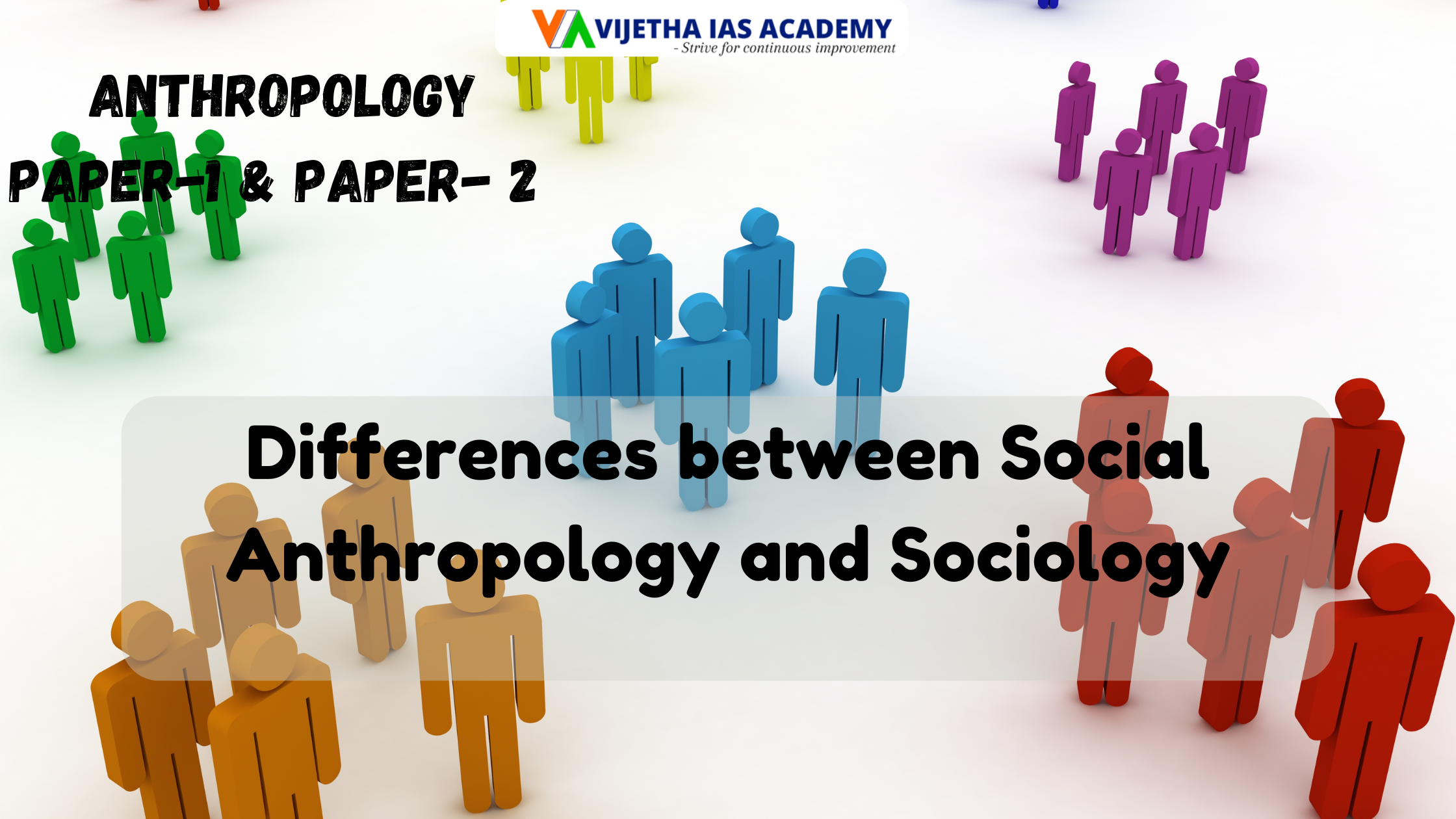
Introduction
Social Anthropology and Sociology are closely related disciplines within the social sciences, both concerned with understanding human societies, cultures, and social behavior. However, they differ significantly in their focus, methodology, and scope. These differences stem from their historical development, academic traditions, and the unique perspectives they bring to the study of society.
Main Body
1. Focus and Scope:
-
Social Anthropology: Focuses primarily on the study of non-Western, small-scale societies, and their cultures. It seeks to understand the underlying structures and functions of these societies, often through the lens of kinship, religion, and social norms. Social anthropologists study how societies organize themselves, how cultural norms are maintained, and how change occurs within these societies.
-
Sociology: Concentrates on modern, complex, and often industrialized societies. Sociologists study a wide range of social institutions, such as the family, education, politics, and economy. The scope of sociology includes both micro-level interactions (such as face-to-face interactions) and macro-level processes (such as social institutions and social change). Sociology seeks to understand social order, social stratification, and the dynamics of social change.
2. Methodology:
-
Social Anthropology: Traditionally employs qualitative research methods, particularly ethnography, which involves immersive fieldwork, participant observation, and in-depth interviews. The goal is to gather a holistic understanding of a society's way of life from the insider's perspective.
-
Sociology: Utilizes a broader range of research methods, including both qualitative and quantitative approaches. Surveys, statistical analysis, interviews, and content analysis are common methods in sociology. This allows sociologists to study large populations and identify patterns, trends, and correlations within social phenomena.
3. Theoretical Orientation:
-
Social Anthropology: Emphasizes the importance of cultural relativism and the concept of "thick description" to understand societies in their own contexts. Anthropologists often draw on theories of functionalism, structuralism, and symbolic interactionism to explain how societies operate and how cultural meanings are constructed and maintained.
-
Sociology: Often grounded in classical sociological theories such as those of Karl Marx, Max Weber, and Émile Durkheim. These theories focus on social structures, power dynamics, and the role of social institutions in shaping individual and collective behavior. Sociology also engages with contemporary theories like feminism, critical race theory, and postmodernism.
4. Disciplinary Tradition:
-
Social Anthropology: Originated in the 19th century as part of the broader discipline of anthropology, which also includes archaeology, biological anthropology, and linguistic anthropology. It has historically focused on non-Western societies, often those considered "primitive" or "tribal" in the colonial context.
-
Sociology: Emerged in the 19th century in response to the social changes brought about by industrialization and urbanization in Europe. It developed as a distinct discipline concerned with understanding the complexities of modern societies and addressing social problems.
Conclusion
While Social Anthropology and Sociology share a common interest in the study of human societies, they differ significantly in their focus, methodology, theoretical orientations, and disciplinary traditions. Social Anthropology tends to emphasize the in-depth study of small-scale societies through ethnography, while Sociology encompasses a broader range of methods and theories to analyze complex, modern societies. Understanding these differences is crucial for appreciating the unique contributions each discipline brings to the study of social life.

